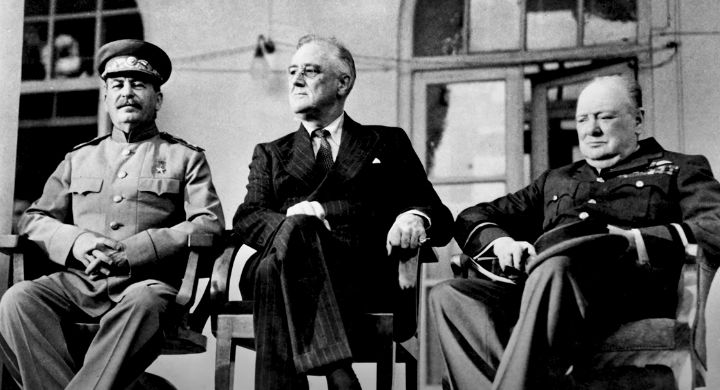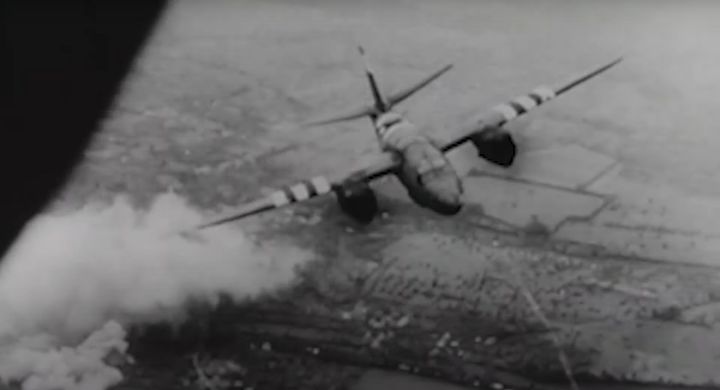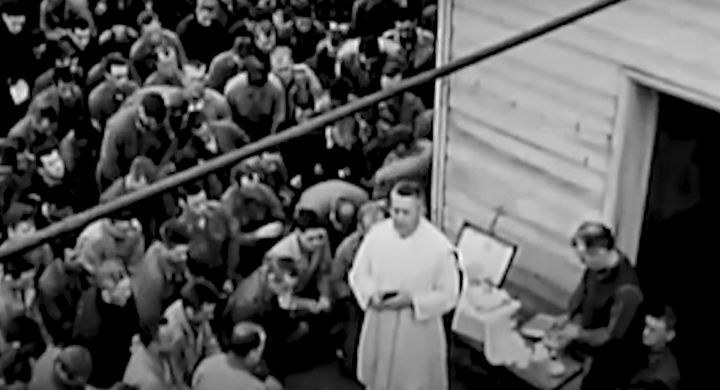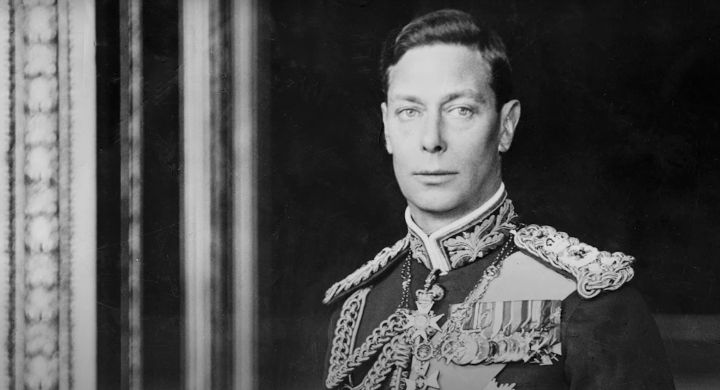Tim Dieppe and John Scriven draw from their book, Beyond the Odds, showing God’s remarkable answers to prayer surrounding D-Day.
Looking back, we might think that the success of D-Day was a foregone conclusion.
This was far from the case in reality.
War is always full of uncertainties and D-Day is a prime example. On 6 June 1944, as the UK and its allies launched the most daring military operation code named ‘Operation ‘Overlord’, there was no certainty of victory, nor could anyone predict and control events leading up to and on D-Day.
There were huge logistical challenges to consider, the massive ‘Atlantic Wall’ defences to overcome, and knife-edge decisions to be made. Leaders at the time recognised that there was also much prayer needed. They recognised their need of God’s help, and contemporaries saw the providence of God in circumstances surrounding the invasion, including critical German mistakes.
The critical timing of D-Day
The timing of the invasion was crucial. From 1942, the Americans wanted the British to launch an invasion of Northern Europe, and Stalin was impatient for this to happen as Russian casualties rose. However, if the invasion had been launched earlier than 1944, the result could have been disastrous. As it was, by then the German forces were weaker, having been pinned down in Italy and defeated in Russia at the Battle of Kursk in 1943.

And, if the invasion had happened later, the invasion forces could have been destroyed in England by the V-1 flying bombs and V-2 rockets, launched from bases in France. Mid-1944 was, with hindsight, the only possible time for success.
Then there was the timing of the landing, which mattered immensely. The landings had to be at dawn, so that the Channel crossing would be in darkness. Some moonlight was needed for the air attacks, but a full moon was dangerous.
Beaches had been strewn with half a million obstacles and six-and-a-half million mines. There had to be a half tide coming in to allow the specialised tanks and the engineers to deal these obstacles.
In late spring and early summer of 1944, this left only the first days of May and the first and third weeks of June as possible dates to launch the invasion.
German mistakes
The RAF had to command the skies. This would not have been possible if, in 1943, Hitler had authorised a new Messerschmitt 262 fighter plane. This had a cruise speed of 520 miles per hour – 120 miles per hour faster than any Allied plane. Instead, Hitler wanted a bomber, and it could not be converted. When the new fighter plane was finally produced at the end of the war, it ran rings round Allied fighters and bored holes in bombers. If these planes had been ready by D-Day, the result could have been catastrophic.

The Germans’ best hope was to destroy the invasion forces as soon as they landed. However, General von Rundstedt did not think that an invasion could be stopped on the beaches and ordered that the main Panzer (tank) forces be kept in reserve for a counterattack. This was a huge mistake. The Panzers could have caused chaos on or near the landing beaches had they been given orders to attack the invaders.
For the Allies, surprise was vital. General Morgan, the chief planner for D-Day, thought that: “If the enemy obtains as much as forty-eight hours’ warning of the assault area, the chances of success are small, and any longer warning spells defeat.”
On the night before D-Day, the Allies destroyed most of the German radar warning stations, and the ones that were working were confused by false signals simulating convoys heading towards Calais. The Germans received no reports of ships assembling on the English coast ready for D-Day.
The night the forces crossed to France was the only night that German U-boats did not patrol the Channel. None of the 4,000 ships and 11,000 planes encountered the enemy.
A ‘heaven-sent break’ in the weather
D-Day was planned for Monday 5 June. The Times later recorded that the meteorological section at Supreme Headquarters had calculated that the chances were about 50:1 against the weather, the tide and the moon being favourable toward the combined operation of ground, sea and air forces.
On Thursday 1 June the forecast for the 5th was for a Force 5 wind. The German High Command was told that the sea would be too rough for landings. On the morning of Sunday, 4 June, the forecast was still bad and air cover was doubtful. US General Eisenhower, the Supreme Commander, made the difficult decision to postpone the invasion by a day.
Group Captain Stagg, advising on the weather, met with the commanders at 9pm on Sunday and reported (as he put it) “a heaven-sent break” in the weather for Tuesday 6 June. Eisenhower and Montgomery, who commanded the land forces, agreed to go for it and made the final decision on the Monday morning.
The next possible date was 19 June. As it turned out, there was a terrible storm that day which would have destroyed the invasion.
Speaking on 4 June 1952, Eisenhower recalled:
“This day eight years ago, I made the most agonising decision of my life. I had to decide to postpone by at least twenty-four hours the most formidable array of fighting ships and of fighting man that was ever launched across the sea against a hostile shore. … If there were nothing else in my life to prove the existence of an almighty and merciful God, the events of the next twenty-four hours did it … The greatest break in a terrible outlay of weather occurred the next day and allowed that great invasion to proceed, with losses far below those we had anticipated …”
The Times later recorded:
“It has never been fully appreciated how near the invasion forces came to a disaster comparable with the Spanish Armada … Had the invasion fleet come in on that Sunday, as could easily have happened, the whole expedition might have been wrecked.”
The role of prayer
Prayer surrounded D-Day. Army chaplains prayed with troops. On Sunday 4 June there was a prayer vigil attended by 400 officers and men of the Second Army HQ, where the final prayer included the following:
“As we stand upon the threshold of the greatest adventure in our history, let us now offer to Almighty God all our powers of body, mind and spirit, so that our great endeavour may be thoroughly finished.”

Commanders trusted in God. General Montgomery’s message to be read out to all troops before the invasion included the following:
“To us is given the honour of striking a blow for freedom which will live in history; and in the better days that lie ahead men will speak with pride in our doings. We have a great and righteous cause.
“Let us pray that ‘The Lord Mighty in Battle’ will go forth with our armies, and that His special providence will aid us in the struggle.”
General Eisenhower’s Order of the Day echoed this:
“… The hopes and prayers of liberty loving people everywhere march with you … let us all beseech the blessing of Almighty God upon this great and noble undertaking.”
The shoulder flash of the troops features a sword and a rainbow. As the troops landed on the beaches, they saw a rainbow – in the days of Noah in the Bible, a sign of God’s mercy. One airplane crew reported that they had flown through the middle of it while carrying out a bombing mission over the beaches.
In the evening of D-Day, King George VI broadcast to his peoples, saying:
“I hope that throughout the present crisis of the liberation of Europe there may be offered up earnest, continuous and widespread prayer…
“At this historic moment surely not one of us is too busy, too young or too old to play a part in a nation-wide, a world-wide vigil or prayer as the great crusade sets forth. If from every place of worship, from home and factory, from men and women of all ages and many races and occupations, our intercessions rise, then, please God, both now and in a future not remote, the predictions of an ancient Psalm may be fulfilled: ‘The Lord will give strength to his people: The Lord will give this people the blessing of peace.’” (Psalm 29:11)

President Roosevelt broadcast to the nation on D-Day asking them to join with him in prayer. In fact, his speech, after a short introduction, was entirely a prayer.
His prayer started:
“Almighty God: Our sons, pride of our Nation, this day have set upon a mighty endeavour, a struggle to preserve our Republic, our religion, and our civilization, and to set free a suffering humanity.
“Lead them straight and true; give strength to their arms, stoutness to their hearts, steadfastness in their faith.”
And continued with:
“Many people have urged that I call the Nation into a single day of special prayer. But because the road is long and the desire is great, I ask that our people devote themselves in a continuance of prayer. As we rise to each new day, and again when each day is spent, let words of prayer be on our lips, invoking Thy help to our efforts.”
Many of those listening would have joined with Roosevelt in that prayer.
General Morgan wrote later:
“We so often hope for a miracle. And miracles happen. How many of them have we not seen enacted before our very eyes in these past few years.”
In his ‘Personal Message from the C-C’, read out to all troops on Victory in Europe Day in 1945, General Montgomery said:
“We must remember to give the praise and thankfulness where it is due.”
Quoting Psalm 118, verse 3, he continued:
“This is the Lord’s doing, and it is marvellous in our eyes.”
Relevance for today
With hindsight, we can see just how close to failure D-Day was.
Numerous things came together at just the right time, each of which was crucial for success. Many of these were factors beyond the control of human planning and organisation.
All the leaders of the time prayed. The President, the King and the most senior Generals were all unashamed to call for prayer and even to lead people in prayers to Almighty God. The vast majority of people in the UK would have responded to such calls for prayer whether in private or in corporate worship.
While we may not be facing a physical war in the nation today, the spiritual battle over the soul of the nation is very real indeed. There are so many broken families, over 10 million aborted babies, and challenges from the gods of LGBT ideology, secularism and Islam.
But we serve a prayer-answering God. He has answered prayers in the past, and he can do it again. When the nation has turned to God in humble prayer in the past, God in his gracious mercy has answered. The lesson for today is that concerted prayer for our nation can change history again as it has in the past.
As the Chronicler famously wrote:
“If my people, who are called by my name, will humble themselves and pray and seek my face and turn from their wicked ways, then I will hear from heaven, and I will forgive their sin and will heal their land.” (2 Chronicles 7:14 NIV)
Read more in Beyond the Odds: Providence in Britain’s Wars of the 20th Century (Wilberforce Publications, 2021).
Quotes and references are taken from Chapter 8 of the book.
A limited-edition hardback 80th Anniversary of D-Day copy of the book is available for £25 from Wilberforce Publications.
The paperback edition is also available to purchase from £17.50 via Wilberforce Publications and Equipping the Church.




